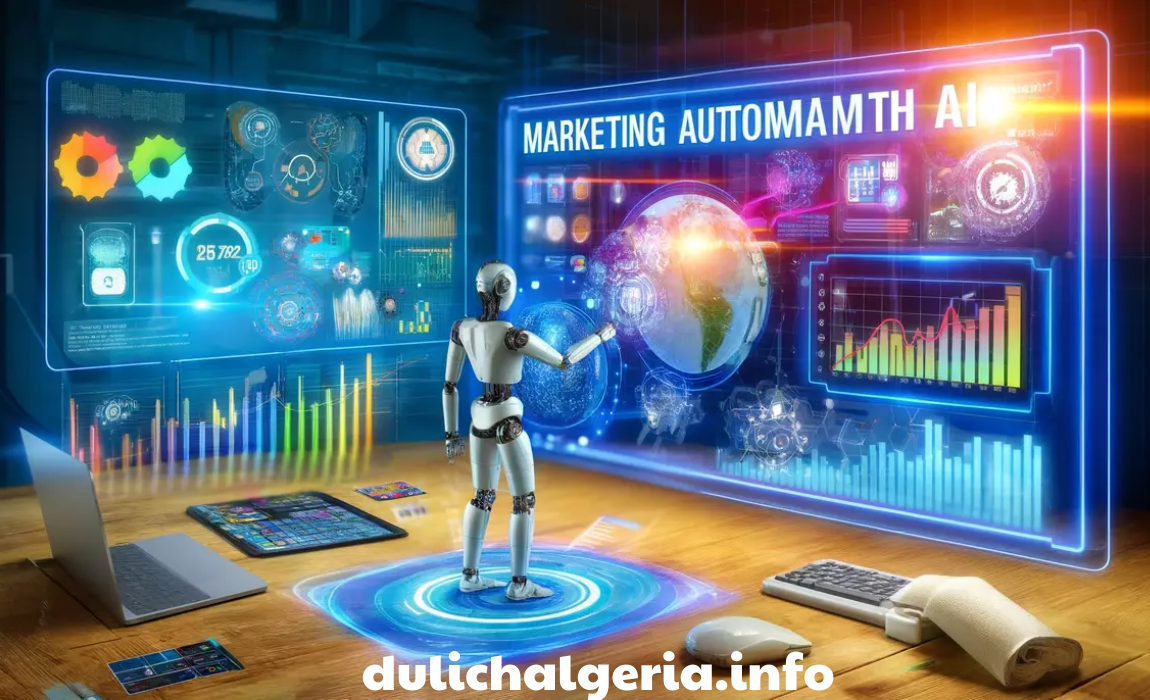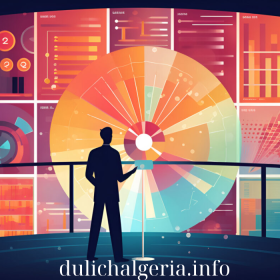In today’s fast-paced digital landscape, businesses must stay competitive by delivering highly personalized, timely, and relevant marketing messages. Artificial Intelligence (AI) has become a critical tool in marketing automation, enabling brands to streamline their campaigns, enhance customer experiences, and improve overall efficiency. By leveraging AI, marketers can analyze vast amounts of data, predict customer behavior, and automate repetitive tasks. In this article, we explore how AI in marketing automation is shaping the future of digital marketing and driving success for businesses in 2024.
1. The Role of AI in Marketing Automation
AI is transforming the way businesses approach marketing by providing insights and capabilities that were previously out of reach. From automating routine tasks to predicting customer behavior, AI enables marketers to optimize their campaigns for better performance and engagement.
Key Benefits:
- Data-Driven Insights: AI processes large datasets to uncover patterns and trends, helping marketers make data-driven decisions.
- Predictive Analytics: AI predicts customer behavior, enabling more personalized and targeted marketing efforts that increase engagement and conversions.
- Automation Efficiency: Routine tasks such as email marketing, social media posting, and ad optimization are automated, freeing up time for marketers to focus on strategy and creativity.
Pro Tip: Use AI to continuously analyze customer data and update your automation workflows in real-time to ensure your marketing stays relevant and personalized.
2. AI-Powered Personalization in Marketing Automation
Personalization has become a cornerstone of successful marketing, and AI plays a vital role in delivering personalized experiences at scale. By analyzing customer behavior, preferences, and interactions, AI-powered tools can create personalized content, offers, and recommendations for each individual customer.
Examples of AI-Powered Personalization:
- Dynamic Content: AI can generate personalized email content, website experiences, and product recommendations based on user behavior and preferences.
- Behavioral Targeting: AI identifies patterns in user interactions, allowing marketers to deliver tailored ads and messages to users who are most likely to engage or convert.
- Product Recommendations: By analyzing past purchases and browsing history, AI suggests relevant products to customers, increasing the likelihood of upsells and cross-sells.
Why It’s Important:
- Improved Engagement: Personalized marketing resonates with customers, making them more likely to engage with your brand and convert.
- Increased ROI: AI-driven personalization improves the effectiveness of marketing campaigns, leading to higher conversion rates and better returns on investment.
Pro Tip: Use AI to deliver real-time personalized content, adjusting messaging based on current customer behavior and context, such as their location, device, or time of interaction.
3. Automating Email Marketing with AI
AI has significantly enhanced email marketing by enabling marketers to send the right message to the right person at the right time. AI-driven email marketing tools can segment audiences, optimize send times, and even generate personalized content based on customer data.
Key AI-Driven Email Marketing Features:
- Audience Segmentation: AI analyzes customer data to create highly targeted segments based on behavior, demographics, and preferences.
- Optimal Send Time: AI algorithms predict the best times to send emails to each subscriber, increasing open and click-through rates.
- Content Optimization: AI can generate and test different email subject lines, body copy, and CTAs to determine which variations drive the highest engagement.
Why It’s Important:
- Better Engagement: AI ensures that emails are sent at the optimal time and personalized to each subscriber, improving engagement and increasing the chances of conversions.
- Efficient Campaigns: By automating segmentation and content creation, AI saves marketers time while improving the overall performance of email campaigns.
Pro Tip: Leverage AI-powered A/B testing for continuous optimization of your email campaigns. AI can quickly identify the most effective elements, allowing you to refine your messaging and drive better results.
4. Predictive Analytics and Lead Scoring
AI’s ability to predict future customer behavior is a game-changer for lead generation and management. By analyzing historical data, AI-powered predictive analytics tools can forecast which leads are most likely to convert, enabling businesses to focus on high-value prospects.
How Predictive Lead Scoring Works:
- Behavioral Analysis: AI evaluates customer behavior, such as website visits, email engagement, and social interactions, to score leads based on their likelihood to convert.
- Customer Journey Mapping: AI tracks each prospect’s journey, identifying key touchpoints and predicting the next steps they are likely to take.
- Real-Time Scoring: Lead scores are updated in real-time based on new data and interactions, ensuring that sales teams are always working with the most accurate information.
Why It’s Important:
- Increased Efficiency: Predictive lead scoring helps sales and marketing teams prioritize their efforts, focusing on leads that are more likely to convert and driving more efficient sales pipelines.
- Improved Conversions: By targeting high-value leads with personalized messaging and offers, businesses can increase their conversion rates and generate more revenue.
Pro Tip: Use AI-driven predictive analytics to forecast not only which leads will convert but also which channels and campaigns are most effective for driving conversions, allowing for better resource allocation.
5. Chatbots and AI-Driven Customer Support
AI-powered chatbots are revolutionizing customer support by providing instant, automated responses to customer inquiries. These chatbots can handle routine questions, guide users through the sales process, and even upsell products, all without human intervention.
Key Benefits of AI Chatbots:
- 24/7 Availability: Chatbots provide round-the-clock customer support, ensuring that users can get answers to their questions at any time.
- Instant Responses: AI chatbots can instantly respond to customer inquiries, reducing wait times and improving the overall customer experience.
- Lead Qualification: Chatbots can ask qualifying questions and direct high-quality leads to your sales team, helping automate the lead generation process.
Why It’s Important:
- Improved Customer Experience: By offering quick and personalized responses, AI chatbots enhance the customer experience and increase satisfaction.
- Lead Nurturing: AI chatbots can nurture leads by offering personalized recommendations and guiding prospects through the buyer’s journey.
Pro Tip: Combine AI chatbots with human support for complex inquiries. When chatbots reach their limits, they can seamlessly transfer the conversation to a human agent, ensuring a high level of customer service.
6. AI-Enhanced Ad Campaigns
AI is transforming digital advertising by enabling marketers to optimize their ad campaigns in real-time. From targeting the right audience to optimizing bids, AI ensures that ad spend is used efficiently to drive the best possible results.
Key AI-Driven Advertising Features:
- Programmatic Advertising: AI automates the buying and placement of ads, ensuring that they are shown to the right audience at the right time.
- Audience Targeting: AI analyzes user data to identify the most relevant audience segments, improving ad relevance and performance.
- Ad Creative Optimization: AI can test different variations of ad copy, images, and CTAs to determine which combinations drive the highest engagement.
Why It’s Important:
- Increased Efficiency: AI-powered advertising ensures that campaigns are optimized in real-time, reducing wasted ad spend and increasing ROI.
- Better Targeting: AI’s ability to analyze user data allows for more precise targeting, ensuring that ads are shown to users who are most likely to convert.
Pro Tip: Use AI to track ad performance across multiple platforms and adjust your strategy based on real-time insights, ensuring your ads are always optimized for the best results.
7. AI and Predictive Content Creation
AI can now assist in content creation, helping marketers generate relevant and engaging content more efficiently. By analyzing audience preferences and trends, AI tools can suggest topics, keywords, and even draft entire pieces of content.
AI Content Creation Tools:
- Natural Language Processing (NLP): AI analyzes user data and trends to generate content that resonates with the target audience.
- Content Optimization: AI tools can suggest changes to headlines, structure, and keywords to improve SEO and engagement.
- Content Scheduling: AI can determine the best times to publish content based on audience behavior, ensuring maximum visibility and engagement.
Why It’s Important:
- Increased Productivity: AI streamlines the content creation process, allowing marketers to produce more content in less time.
- Improved Relevance: AI-driven content creation ensures that content is tailored to the interests and preferences of your audience, increasing engagement and conversions.
Pro Tip: Use AI tools like Grammarly or Jarvis to enhance your content creation process, ensuring your copy is both engaging and optimized for search engines.
Conclusion
In 2024, AI in marketing automation is revolutionizing the way businesses connect with customers, optimize campaigns, and drive growth. By leveraging AI-powered tools for personalization, predictive analytics, lead scoring, and customer support, marketers can automate time-consuming tasks while delivering highly relevant and personalized experiences. Whether you’re optimizing email campaigns, running AI-enhanced ad campaigns, or using chatbots for customer engagement, AI offers unparalleled opportunities to boost efficiency and improve ROI. As AI continues to evolve, businesses that embrace these technologies will be well-positioned to thrive in the competitive digital landscape.


